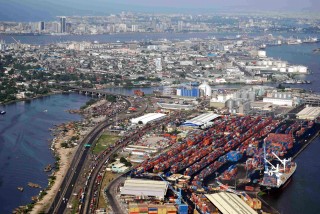Earlier this month, the Boston Consulting Group (BCG) released its Sustainable Economic Development Assessment (SEDA) Report on Nigeria titled “Unlocking Nigeria’s Potential: The Path to Well Being.” This report evaluates the relative well-being of countries around the world by measuring how effectively a nation converts wealth into well-being, along with ten socioeconomic dimensions including economic stability, employment, income equality, health, environment and infrastructure.
Since the fall in the price of oil began in 2014, Nigeria has struggled to save its economy from total collapse. Several investors have pulled out of the country and many companies have shut down their Nigerian operations due to stringent monetary policies put in place by the government. According to a ranking of business prospects by the research unit of Nielsen Holdings Plc. published in February, Nigeria fell to the fourth position from first, lagging behind Ivory Coast, Kenya and Tanzania. Many worry that Foreign Direct Investment (FDI), this year, could be the lowest since the 2008-09 global financial crisis, if critical steps are not taken.
Ventures Africa spoke with one of the authors of the BCG report, Wiebe Boer, to find out why Nigeria is a poor performer and what it can do to attract Foreign Direct Investment.

(VA): Why is Nigeria a poor performer in converting wealth to well-being?
(WB): From our findings, Nigeria lags behind in converting wealth to well-being when compared to its peers in a number of critical areas including governance, civil society, infrastructure, education and health systems. The reason for Nigeria’s poor performance is not the focus and purpose of the report as we are focused on solutions instead.
From our findings, governance and civil society are strongly correlated and improvements in both areas will yield better management of Nigeria’s wealth and resources. Nigeria’s poor infrastructure has major ripple effects and creates a significant drag on the economy. Improving infrastructure would have an immense impact on the economy and on well-being. Also, Nigeria’s subpar education system has a major negative impact on the quality of its workforce. In addition to this, the country’s health system is in dire need of repair. Nigeria must revamp the entire health ecosystem and adopt innovative approaches that will allow Nigeria’s health system to “leapfrog” ahead.
(VA): What can the government do to be more responsive to the needs of the people?
(WB): The government is responsive, but often does not have the resources or strategic prioritisation required to deliver on those needs. Governments struggle to translate their ideas into reality. This can be even more challenging in developing countries because of a lack of implementation expertise, ambiguous laws and weak enforcement and overlapping responsibilities among ministries, agencies and levels of government.
We have identified seven steps that can help governments get the most out of reform efforts, which are to set clear priorities; focus resources on those priorities; develop detailed action plans and monitor execution closely; create linkages between implementers and decision-makers; lead from the front; go for some early wins, but keep an eye on the long-term; communicate the message about reform to those inside and outside of government.
(VA): Has e-governance really created transparency?
(WB): E-governance can offer dividends well beyond simply improving how citizens interact with their governments. Digital tools can have a major positive impact on governance. These tools reduce the number of points at which government employees provide services personally or make decisions, cutting down on the opportunity for leakage and enhancing the trust people have in government. In addition, digitisation improves the efficiency and user-friendliness of existing processes. For example, the Nigerian pension scheme was transformed from one large national fund into a system of individual accounts, with people free to choose among a group of pension fund managers to their individual account. Under the old system, it would often take years for retired employees to receive their pension—if they received it all. The new system, which is built on a transparent, digital platform, gives Nigerian citizens increased visibility and control over their pensions, fostering more faith in the system. Other African countries such as Kenya and Rwanda have effectively used e-governance to reduce leakage and help the population get better (and more direct) government service. It is not a silver bullet, but it is certainly an effective solution.
(VA): What can Nigeria do to boost the inflow of private investment?
(WB): Nigeria needs to improve the enabling environment for businesses to attract FDI. While many of the current policies in place in Nigeria are business-friendly and progressive, the reality is in the execution of these policies. In addition, the nation’s poor infrastructure is one of the country’s greatest challenges when it comes to attracting capital as it makes Nigeria uncompetitive in almost all sectors. Transport is a big problem, but the lack of adequate grid power for businesses is a major driver of this competitiveness. Only 56 percent of the Nigerian population has access to electricity, well below the average of 80 percent for all three peer groups. Power outages are widespread with three-quarters of companies reporting that the lack of access to reliable energy is a major constraint. While the Nigerian power system has the capacity to generate over 10,000 megawatts, due to a host of problems, including ageing equipment and an inadequate transmission network, only about 4,000 megawatts is actually transmitted in a country of 170 million people. Recent power privatisation efforts have been less than successful due to a host of issues including the ability of some people to access power without paying, a poor transmission infrastructure and difficulties among some power plants in accessing reliable gas supplies. For example, Transcorp, a Nigerian conglomerate that is an important investor in this area, has put a hold on some of its plans due to concerns about profits on its investments. Improvement on infrastructure would have an immense impact on education, health and the economy thus attracting private investments and improving the well-being of citizens.








